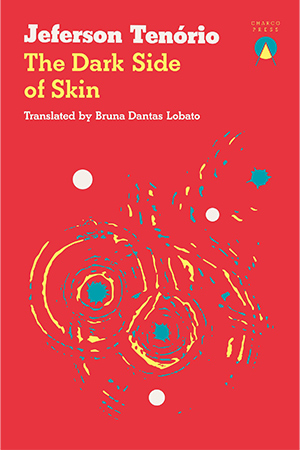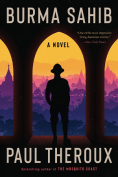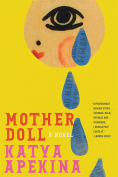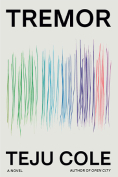The Dark Side of Skin by Jeferson Tenório
 Edinburgh. Charco Press. 2024. 202 pages.
Edinburgh. Charco Press. 2024. 202 pages.
Looking at the contents page of The Dark Side of Skin for the first time, I was drawn to the title of the book’s third section, “Back to St Petersburg.” The blurb describes a book whose center is the city of Porto Alegre in the south of Brazil, so I was intrigued to see how Henrique, a down-on-his-luck teacher, got himself out of a rut and over to Eurasia. The St. Petersburg of the penultimate section is only one of the mind, though; it is the St. Petersburg of Dostoevysky’s Crime and Punishment, and Henrique’s only trips to Russia occur when he opens the book on his bus journeys to and from school as well as when he teaches the text, a means to bridge the seemingly insurmountable gap between him and his students. My expectations collided with reality, which seems to mirror a lot of what goes on in The Dark Side of Skin: it is a story of ideals and ambitions shrinking when they come into contact with lived reality, a tale that relentlessly reveals the forced limitations its characters reluctantly come to terms with. So often lauded as one of humankind’s crowning achievements, our adaptability is reduced to a depressing fact of life here; “we get used to” all sorts of situations that conflict with our attitudes and beliefs, simply because there are seemingly no viable alternatives.
The Dark Side of Skin is narrated by Pedro, the son of Henrique and Martha, and deals with him leafing through his father’s possessions and coming to terms with his death. It is almost entirely written in direct address and amounts to a eulogy, the one he couldn’t bring himself to deliver at his father’s funeral. Despite his being gone, Pedro decides to tell his father his own life story. Perhaps he intends to inspire some pride in his old man, who had always been so quick to beat himself down.
More than anything, this biography of sorts is punctuated by firsts: while dealing with certain universal experiences such as first loves and early sexual encounters—details of which must have been laid out in his father’s notes—The Dark Side of Skin is more concerned with Henrique’s initial experiences of race, then how it “started to take up even more space in [his] life and [he] didn’t even notice.” Despite his best intentions to live a normal life, Henrique’s is indelibly marked by the color of his skin. Following a formative lecture on the history of racism and Black consciousness, he can no longer avoid the issue: suddenly, the names his white girlfriend’s family throw his way sound racist to his ears for the first time. He starts to see how “the degree of melanin” sets the course of one’s life and the bind this results in: in Porto Alegre, a Black person lives a sort of negative existence, avoiding certain actions and behaviors so as to not perpetuate racial stereotypes. At the same time, they make a concerted effort not to attribute all of their failures to racism, despite how far-reaching systematic injustices affect them. Caught up like this, their true and unfettered abilities remain unknown to them.
Despite its focus on how race shapes lives, The Dark Side of Skin is full of musings on life’s achromatic miseries too. The stubbornness of a guilt that stalks us like a shadow from birth to death, the pains that are our lot in life, the anxieties that abound in interpersonal relationships, all these and more fill the book’s pages. By jumping between the universal problems all humans run into and those that arise because of racial intolerance, Tenório paints a painful picture of one Black man’s struggle and the unnecessary excess of his suffering.
The Dark Side of Skin is a powerful account of how systemic racism molds the lives of Black people. It is a hard-hitting, direct novel that spares little time for pretense or allegory. Tenório’s story is urgent and is currently the subject of a censorship battle in Brazil. Ultimately, it is an ode to all those who are only ever known by their race and as such need an authentic account of their lives told, one that is not just skin deep.
Colm McKenna
Paris










![The cover to [...] by Fady Joudah](/sites/worldliteraturetoday.org/files/styles/backissue_small/public/Joudah.jpg?itok=HZO1_68A)















